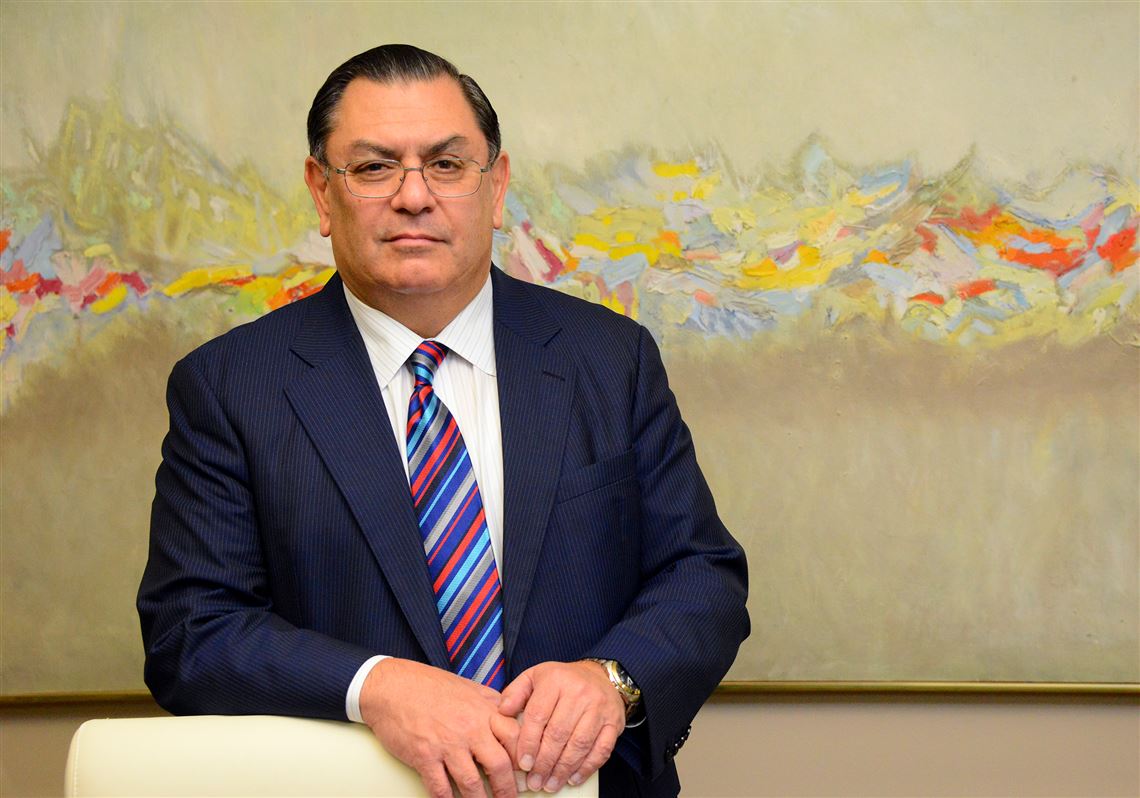Brian Cunningham, a 2015 graduate of the University of Pittsburgh’s Katz Graduate School of Business, has nothing but praise for the Katz faculty and staff. “I learned so much through that program,” he said in phone interview Wednesday.
Mr. Cunningham, 41, is the New York-based director for Pfizer pharmaceutical company’s planning and innovation for Oncology North America. He completed the Pitt MBA program while based in Pittsburgh as Pfizer Oncology’s district business manager.
While saying his education in the Katz program “really paid off,” he also admits to “a little bit of envy” of prospective students in a new executive MBA program exclusively for health care executives that Katz plans to launch in May.
The 19-month program will be divided into five terms, starting with courses in leadership, accounting and statistical analysis, then information technology and economic analysis, followed by global supply chain management, health care policy, and insurance and risk management, among others.
The accelerated program hopes to draw about 25 executives from a broad range of health care sectors, including insurance, public health, pharmaceuticals, biotechnology and those involved in the development of medical devices.
And it has Mr. Cunningham wistful about what it would have been like studying side by side with others in the health care industry.
An information technology class might focus on managing electronic health records, while another looks at the specialized nature of a managing a global pharmaceutical supply chain. Legal and ethical classes will zero on issues particular to a changing health care landscape, and specific courses can address the regulations associated with the Affordable Care Act, as well as those in the Food and Drug Administration.
“I think the level of knowledge would have been that much greater,” said Mr. Cunningham. “That’s going to be a huge difference.”
The executive MBA program in health care is the brainchild of Arjang Assad, Katz Graduate School of Business and College of Business Administration dean, who said the idea first occurred to him a decade ago.
At the time, he was struck by the possibilities inherent in a city like Pittsburgh where health care played a major role in the local economy, where the university held a strong reputation in health sciences and with the prospect of partnering with a major health system such as UPMC.
“I thought that constellation of things coming together gives us an excellent opportunity to do something new and innovative.”
If the ingredients were already in place, the adoption of the Affordable Care Act can be a great impetus for generating demand for such a program.
Payments for the delivery of health care is moving away from a fee-for-service model to one based on patient outcomes, with greater emphasis on data collection and analysis, Mr. Assad noted.
“That’s a huge shift and that gets people thinking, ‘How are we going to accomplish this?’”
Traditional MBA programs typically will touch on coursework related to health care, he said, but “they don’t necessarily customize to health care that much.”
Completing such a program while holding down an executive position “is definitely challenging,” Mr. Cunningham allowed. “It really gives you a good sense of time management.”
Mindful that every student also will have a demanding day job, the Katz program is designed so that students will meet as a group only one weekend a month. But between those gatherings, Mr. Assad said they will be encouraging interactions within the group, even if it’s done remotely.
“Our goal is to try to do something very collaborative.”
Steve Twedt: 412-263-1963 or stwedt@post-gazette.com.
First Published: August 4, 2016, 4:00 a.m.
















